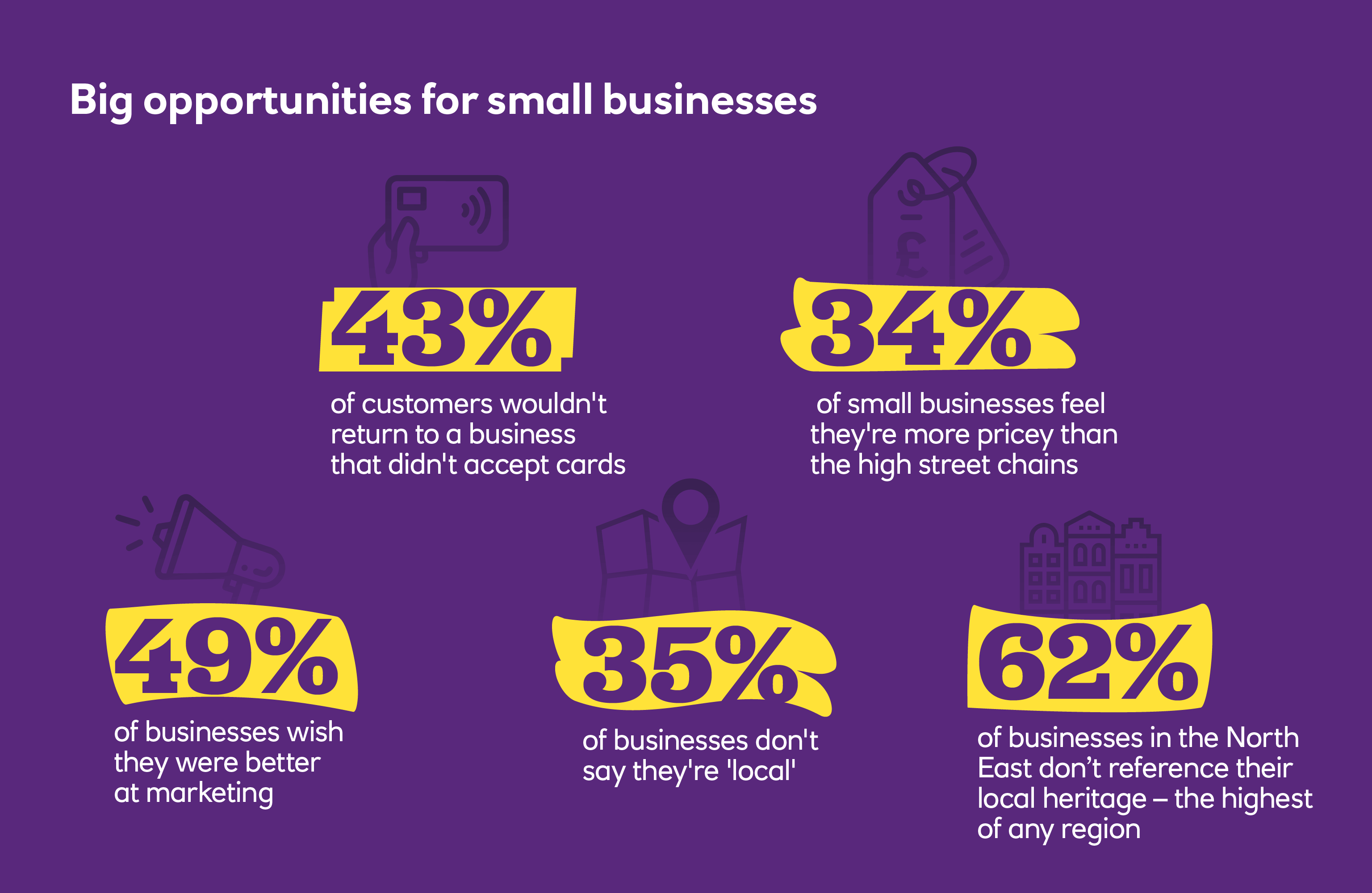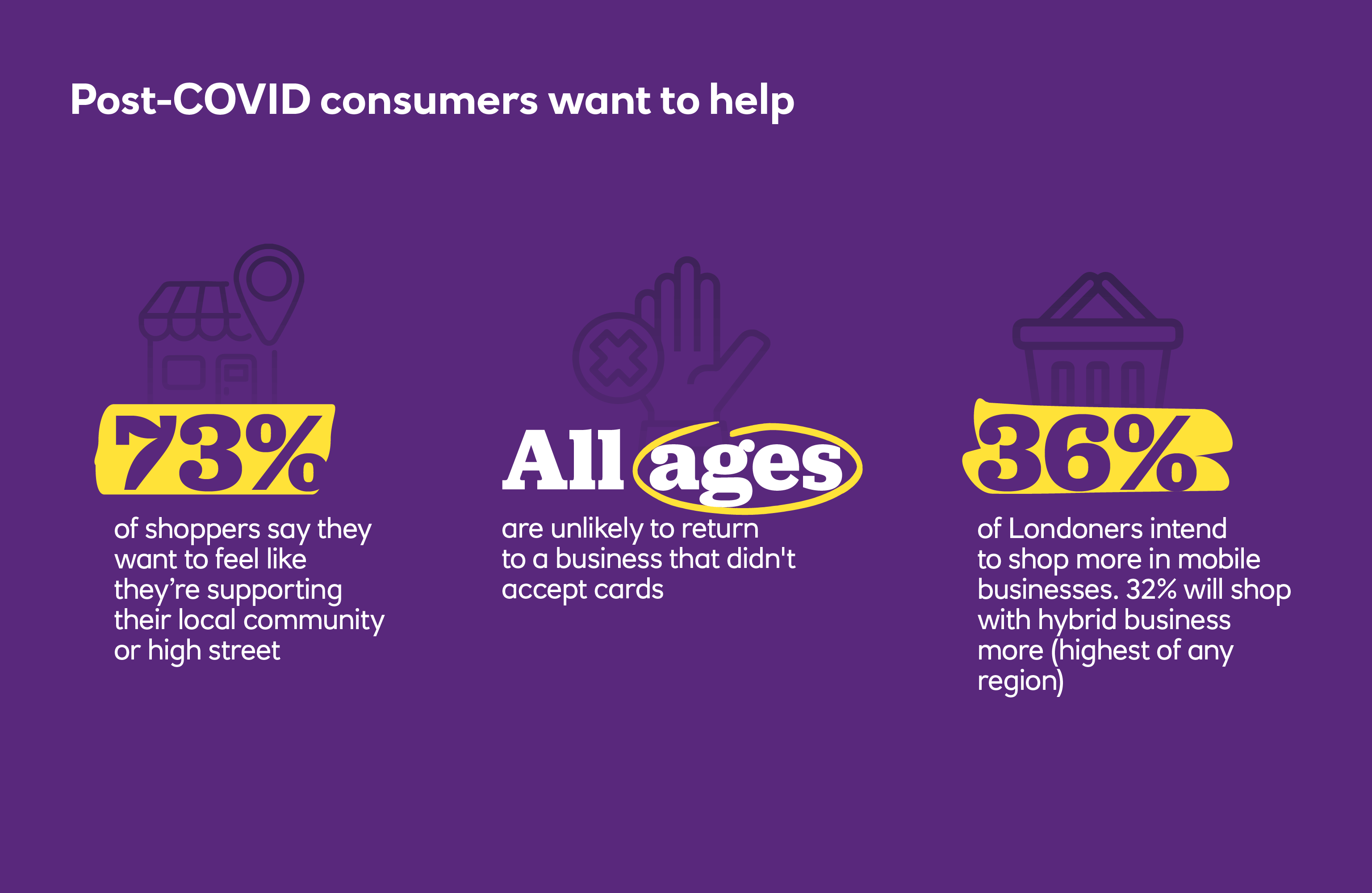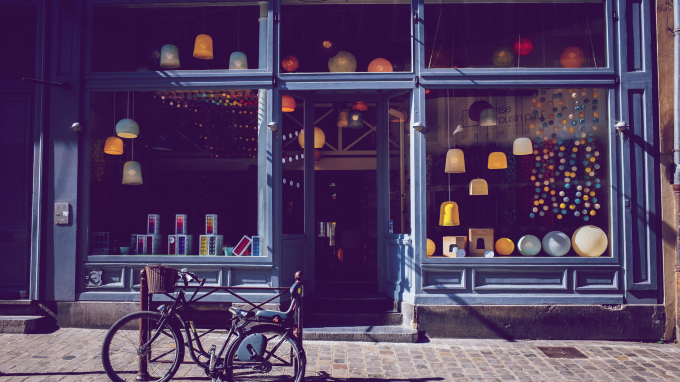In these rollercoaster 2020s, few of us can say we’ve not been affected – however large or small the impact – by the cost of living crisis. And for millions of businesses, rising energy costs, inflation and staffing shortages have created a perfect storm of challenges to contend with. But are small businesses uniquely placed to ride out this time of uncertainty, and what can we learn from the hybrid heroes who’ve created new business models overnight? A new Tyl and Censuswide survey of 500 small business owners and 2,000 UK adults suggests that bigger isn’t always better.
- Are hybrid high streets the answer? 36% of people in Greater London say they intend to shop more often in mobile businesses, and 32% will shop more in hybrid businesses – the highest percentages of any UK region
- But are businesses missing a trick? Just one in four (24%) small business owners say they will invest in a mobile premises
- Among consumers, price was given as the most important factor (29% of respondents) when deciding whether to shop at a local business
- But despite concerns about price, 73% of shoppers say they want to support their local community or high street with their shopping habits.
Feeling the pinch
Businesses have fought back remarkably from the COVID-19 pandemic, but even so, few firms (and their customers) are immune from the pressures caused by supply chain shortages, rising demand and ever-growing prices at the pump.
Of the small businesses we spoke to, almost nine in ten (88%) said they were concerned that the cost of living squeeze would impact customers’ decisions to shop locally
These business owners’ concerns would appear to be justified. According to our wider research, 45% of people in the UK say they’re cutting or reducing their non-essential spending, and 1 in 2 people expect they will either need to get another job (or work overtime) in order to deal with their financial concerns.
Many business owners are all too aware that they may have to pass on costs to their customers. In fact, our survey showed that a majority of small business owners in every region (except the West Midlands) admitted their pricing was more expensive than established high street chains.
And across the board, the consumers we spoke to were ‘price-sensitive’. Nearly a third (30%) of consumers say that they will shop more locally due to the cost of living squeeze.
Across all ages we surveyed, price was cited as the biggest priority when deciding whether to shop locally. But when margins are tight, how can small businesses survive, and even thrive? And what can encourage consumers to support local?
Rediscovering a love for local
Digging into the survey data, what becomes clear is that local shopping is increasingly important to shoppers.
More than two-thirds (67%) of customers agreed that they’d rather buy products and services from their own neighbourhood to help support the local economy. This positive sentiment was as high as 73% among 25-34-year-olds, and 74% in the East Midlands.
Additionally, when asked what the most important factor is when deciding to shop locally with a small independent business, more than a fifth (22%) said that supporting the local economy was an important consideration, ranked only behind price (29%).
But while the lust for local is real, could small businesses be held back by the perception that shopping locally is more expensive? 68% of people believe that shopping locally or through a small independent business is pricier than using a high street chain.
How small businesses can become local heroes
What can small business owners do to encourage consumers to shop local? While businesses have been amazingly resilient in the last couple of years, are there opportunities to restore some faith in local shopping?
Here are some key insights we uncovered:

Running a business in a hybrid world
As we all know, during the height of the COVID-19 lockdowns, many businesses were forced to close shop and were unable to fully trade (or operate at all) from their premises. And more than two years since the outbreak began, there have been fundamental shifts that have altered the way customers interact with businesses:
- The office-based 5-day week could be over, leading to reduced daytime footfall in certain locations.
- In the ‘race for space’, many customers have relocated to suburbs, small towns and villages. New customer profiles, like the ‘digital nomad’, have presented a whole new target audience.
- Takeaway apps are embracing embraced the phenomenon of ‘dark kitchens’, where food is prepared for delivery without a traditional bricks-and-mortar premises.
Our survey indicates there’s a strong public appetite for some of the changes that have transformed the way we live, work and shop.
But are consumers and businesses prepared for this brave new world? Despite the loyalty that consumers feel towards their local shopping areas, some businesses are arguably yet to capitalise on these trends. As we’ve covered, more than a third (35%) of businesses we polled say they don’t promote themselves as a local business, and only a quarter (24%) say they will invest in a mobile premises.

How hybrid heroes are leading the way
Many small businesses have shown that an agile approach to trading – combining the best of online and offline commerce – can pay dividends.
At the height of the COVID-19 pandemic, countless craft breweries, coffee roasters and beauticians quite literally got on their bike and offered deliveries and services to customers on their doorstep – selling both in-person, online and over the phone.
Even among larger businesses, the hybrid high street concept has taken off. Sportswear giant Nike has launched a new series of hyper-local stores across the world called Nike Unite – “built to help locals connect more closely with sport”. And in London, cosmetics brand Lush created a 24-hour automated pop-up store (similar to a large vending machine) it described as a “retail theatre that never sleeps”.
With customers increasingly looking for flexibility in the way they pay for goods and services, having a best-in-class portable card reader, like our pocket card machine, can help businesses reach their customers where they actually are. Whether you’re serving coffee from a van, or falafel at a food court, using a card machine that doesn’t rely on a Wi-Fi connection (or a countertop) could help you take payments in a range of locations. Not only that – a virtual terminal gives you oversight over the day’s sales, whether you’re taking online or phone orders from London, Lagos or Llandudno.
Sources
Survey 1: Censuswide survey of 2,000 UK adults conducted 24th-28th March 2022, Censuswide survey of 500 Micro Business Owners
Survey 2: Sevanta survey of 1,500 UK adults repeated in waves every 4-6 weeks post-pandemic
Additional sources:
https://www.timeout.com/london/news/the-mystery-of-londons-dark-kitchens-041322
https://www.hamhigh.co.uk/news/north-london-breweries-adapt-to-lockdown-6891828
https://www.cityam.com/coronavirus-the-london-coffee-firms-offering-home-delivery/
https://professionalbeauty.co.uk/site/newsdetails/home-based-beauty-salons-boom
Fair use
Think your readers might like to hear about this research? Feel free to share the information on your website and credit with a link back to this page so they can see the research in its entirety.
Disclaimer
This has been prepared by Tyl by NatWest for informational purposes only and should not be treated as advice or a recommendation. There may be other considerations relevant to you and your business so you should undertake your own independent research.
Tyl by NatWest makes no representation, warranty, undertaking or assurance (express or implied) with respect to the adequacy, accuracy, completeness, or reasonableness of the information provided.
Tyl by NatWest accepts no liability for any direct, indirect, or consequential losses (in contract, tort or otherwise) arising from the use of the information contained herein. However, this shall not restrict, exclude, or limit any duty or liability to any person under any applicable laws or regulations of any jurisdiction which may not be lawfully disclaimed.
